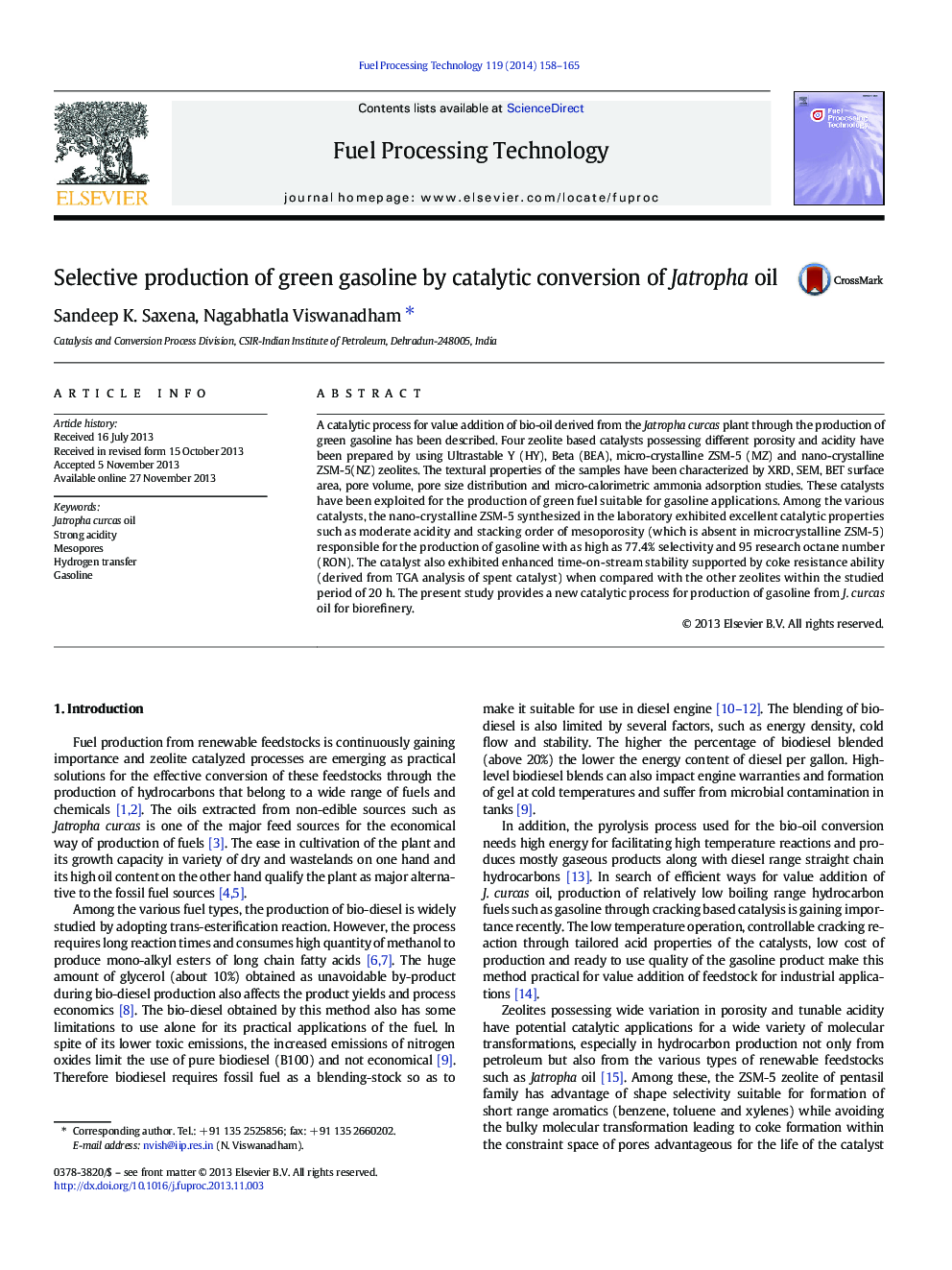| Article ID | Journal | Published Year | Pages | File Type |
|---|---|---|---|---|
| 209891 | Fuel Processing Technology | 2014 | 8 Pages |
•Zeolite acidity and porosity influence product nature in Jatropha oil conversion.•NZ is efficient for production of gasoline with as high as 77.4% selectivity.•The low benzene and high octane product is suitable for gasoline applications.•The NZ catalyst also exhibits higher time-on-stream stability.
A catalytic process for value addition of bio-oil derived from the Jatropha curcas plant through the production of green gasoline has been described. Four zeolite based catalysts possessing different porosity and acidity have been prepared by using Ultrastable Y (HY), Beta (BEA), micro-crystalline ZSM-5 (MZ) and nano-crystalline ZSM-5(NZ) zeolites. The textural properties of the samples have been characterized by XRD, SEM, BET surface area, pore volume, pore size distribution and micro-calorimetric ammonia adsorption studies. These catalysts have been exploited for the production of green fuel suitable for gasoline applications. Among the various catalysts, the nano-crystalline ZSM-5 synthesized in the laboratory exhibited excellent catalytic properties such as moderate acidity and stacking order of mesoporosity (which is absent in microcrystalline ZSM-5) responsible for the production of gasoline with as high as 77.4% selectivity and 95 research octane number (RON). The catalyst also exhibited enhanced time-on-stream stability supported by coke resistance ability (derived from TGA analysis of spent catalyst) when compared with the other zeolites within the studied period of 20 h. The present study provides a new catalytic process for production of gasoline from J. curcas oil for biorefinery.
Graphical abstractFigure optionsDownload full-size imageDownload as PowerPoint slide
